Videos
Crisis Contemplation: Healing the Wounded Village with Barbara A. Holmes
We are tasked with teaching while being under siege. We are teaching persons who are living under siege. This inspirational conversation frames the need for teachers to learn communal strategies of survival which may have been previously abandoned or never learned. Learning to leap away from conformity might require teaching as the act of dreamers, conjurers, time travelers, and pilgrims. What if the vision for a new paradigm of education espoused education for everyone? What does it mean to teach what we do not know but what we have glimpsed? How do we keep job obligations from dampening our teaching and truncating our imaginations? How do we push through the fear to risk new paradigms for communal teaching?
Dr. Barbara A. Holmes
Faculty and Author for the Center for Action and Contemplation Living School
President Emerita with United Theological Seminary of the Twin Lakes
After Whiteness: An Education in Belonging with Dr. Willie James Jennings
This conversation, dappled with Dr. Jennings’ readings of original poetry and prose, examines the destitution of faculty when the only legitimate expression of scholarship is to perform the values of being a white, self-sufficient, and male. Individualism, competition, and arcane merit standards have fundamentally distorted theological education. Jennings asserts that the generative aim of education ought to be belonging. He challenges us to muster the courage and creativity for the discovery of our genuine contributions to the production of knowledge. Without this risk we fail our students and one another. What is the collective sound of your faculty? When the faculty plays together – what is original tune? In what kinds of improvisation does your faculty revel? How does the music of the faculty inspire students to join in?
Dr. Willie James Jennings
Associate Professor of Systematic Theology and African Studies
Yale Divinity School
Conversations on Teaching and Spirituality – Episode Three: Sustaining the Genuine
Series One: Episode 3 of 3: Sustaining the Genuine
What are the practices which might assist us as we endeavor to still ourselves to sustain the genuine? Who are the trusted people who we rely upon? What role does the body play in sustaining the sound of the genuine, the feeling of the genuine, the experience of the genuine?
Dr. Amy G. Oden
Adjunct Professor of Early Church History and Spirituality
Independent Scholar
Rev. Dr. Shively T. J. Smith
Assistant Professor of New Testament
Boston University School of Theology
Seasons of a Teaching Career Episode Three: Creativity, Imagination, and Fears: Becoming a Generative Scholar
Series One: Episode 3 of 3:
It takes time to unfurl from the processes of a doctoral program and lower the anxieties created in a job search. Now that you are an early career colleague, in what ways might you decompress and create strategies for bringing your genuine voice into your classroom? What does it take to shed the impulse of conformity and work for your own distinctive generativity? In aspiring for a lifelong teaching career, who might be your mentors, conversation partners, and guides? Rather than reduce teaching to perfunctory tasks, what does it mean to develop the artistry of teaching? As an early career scholar, what does it mean to live into your own imagination, creativity, and courage for teaching?
Dr. Leah Payne
Portland Seminary, George Fox University
Dr. Roger Nam
Candler School of Theology, Emory University
Dr. Nancy Lynne Westfield
Wabash Center of Teaching and Learning in Theology and Religion
• If racism is so pervasive as to be like “smog in the air” (Dr. Beverly Daniel Tatum) – how do we identify acts of racism?
• What does it mean to be complicit with racism?
• What kind of listening is needed to become anti-racist?
• Is there such-a-thing as “microaggression?”
Dialogue On Teaching, Controversy of Thought
What does it mean when scholars of religion are forbidden from teaching about racism? Who is harmed and what problems are created when sophisticated and common-sense approaches to race are part of the curricular experience? In what new ways is tenure necessary for scholars who risk teaching critical race theory? Dr. Finley’s work on whiteness is sparking controversy in and beyond his Louisiana State University classroom. As a scholar of religion, what preparation is needed for the moments our work spills-over into the larger society and provokes social discourse with the potential to catalyze social change? Scholar, who told you that you could think freely, think boldly, and think imaginatively? What is it to garner the courage to do the scholarly work our souls must have?
Dr. Stephen C. Finley
Associate Professor
Department of African & African American Studies
Department of Philosophy & Religious Studies
Louisiana State University
Dr. Nancy Lynne Westfield
Wabash Center of Teaching and Learning in Theology and Religion





